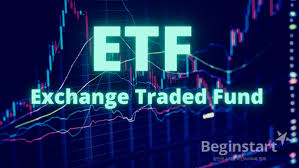
Exchange-Traded Funds (ETFs) have emerged as powerful investment vehicles that offer exposure to various asset classes, 소액결제 현금화 including commodities like oil. As the global demand for energy continues to rise, the role of ETFs in oil trading has become increasingly significant. In this blog, we will explore how ETFs facilitate participation in the oil market, the advantages they offer to investors, and their impact on the overall dynamics of oil trading.
What are Exchange-Traded Funds (ETFs)?
ETFs are investment funds that are traded on stock exchanges, allowing investors to buy and sell shares throughout the trading day. These funds typically aim to replicate the performance of a specific index or asset class. In the case of oil ETFs, they seek to track the price movements of crude oil or related oil assets.
Oil ETFs – Access to the Energy Market
For individual investors and institutions seeking exposure to the energy sector, oil ETFs provide a convenient and cost-effective solution. With a single investment, investors gain access to a diverse portfolio of oil-related assets, without the need to directly engage in the complexities of the commodities market.
Types of Oil ETFs
There are different types of oil ETFs available to cater to various investment preferences. Some ETFs directly track the price of crude oil futures, while others invest in energy companies or oil-related industries. Additionally, some ETFs may use derivatives to achieve their investment objectives.
Advantages of Investing in Oil ETFs
a. Diversification: Oil ETFs offer investors exposure to a broad range of oil-related assets, spreading the risk across different companies and regions within the energy sector.
b. Liquidity: ETFs are traded on major stock exchanges, ensuring high liquidity and easy access to buying or selling shares.
c. Transparency: ETFs provide transparent holdings, allowing investors to know the assets they are invested in and their weightings.
d. Flexibility: Investors can buy or sell ETF shares at any time during market hours, providing flexibility in managing their investment positions.
Impact on Oil Trading
The popularity of oil ETFs has had a notable impact on the dynamics of oil trading:
a. Increased Trading Activity: ETFs have led to increased trading activity in the oil market as investors buy and sell ETF shares based on their views of oil prices.
b. Price Volatility: The influx of capital from ETF investors can lead to short-term price fluctuations in the oil market, impacting supply and demand dynamics.
c. Hedging and Speculation: Some investors use oil ETFs as hedging tools to protect against oil price fluctuations, while others employ them for speculative purposes to capitalize on price movements.
Risks and Considerations
While oil ETFs offer advantages, investors should be aware of the potential risks:
a. Price Volatility: The oil market is known for its price volatility, which can affect the performance of oil ETFs.
b. Contango and Backwardation: Oil futures markets may exhibit contango (higher future prices) or backwardation (lower future prices), which can impact ETF returns.
c. Geopolitical Factors: Oil prices can be influenced by geopolitical events, adding unpredictability to oil ETF performance.
Conclusion
Exchange-Traded Funds (ETFs) play a crucial role in oil trading, offering investors convenient access to the energy sector with advantages such as diversification, liquidity, and transparency. As the global demand for energy continues to grow, the impact of ETFs on oil trading dynamics becomes increasingly pronounced. However, investors must carefully consider the risks associated with oil ETFs, including price volatility and geopolitical factors.
By understanding the role of ETFs in oil trading and conducting thorough research, investors can make informed decisions about integrating oil ETFs into their investment portfolios. As a versatile and accessible investment tool, oil ETFs have transformed the way investors participate in the ever-evolving energy market.